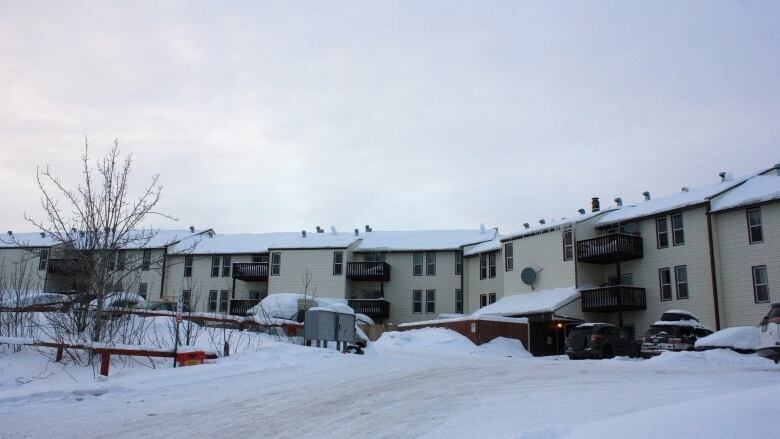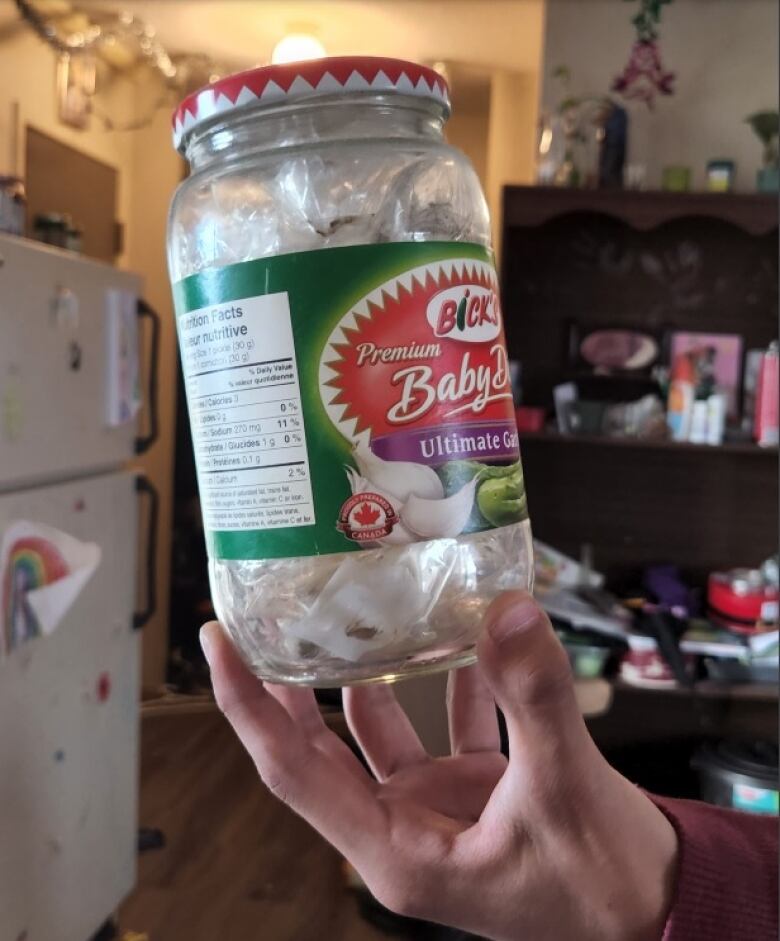Housing groups call for state of emergency for Indigenous people in N.W.T.
'We're literally in a housing state of emergency,' says housingadvocate Lisa Thurber

Two national housing groups are calling on the Northwest Territories to declare a state of emergency for housing Indigenous people, particularly women and girls.
The National Indigenous Housing Network and Women's NationalHousing and Homeless Network say Housing NWT, the territory'shousing agency, is failing northern Indigenous people.
"We're literally in a housing state of emergency," housingadvocate Lisa Thurber said on behalf of the groups.
"These tenants are literally in tears," she said. "The biggestcomplaint is: 'I'm cold.' We live in the Northwest Territories for Pete's sake and most of the winter is cold, so what are we doingabout that?"
Thurber, who recently formed a territorial tenants' association,said housing issues in the N.W.T. have been well documented.
Richard Edjericon, MLA for Tu NedhWiilideh, tabled photos in October depicting an insect infestationin a public housing unit in the Lanky Court apartment building inYellowknife.

Last month, several other legislature members also raisedconcerns with public housing citing issues such as mould, pest-infestations, leaking sewage, broken windows, inadequateheating, high rental costs and arrears.
"The root of the problem is this government's inability orunwillingness to provide adequate housing for all our residents," Frame Lake MLA Kevin O'Reilly told the assembly. "Housing is not a priority withthis government when we continue to spend more onroads than onhousing and travel to Ottawa for mega projects over housing."
Kam Lake MLA Caitlin Cleveland subsequently raised concernsthat Housing NWTdoesn't collect data on the gender or ethnicityof people living in public housing or on people experiencinghomelessness across the territory.
13 per cent of households in need
Beyond public housing, the 2021 census found just over 13 percent of N.W.T. households were in need of core housing, meaningtheir dwellings did not meet at least one of adequacy, affordabilityor suitability standards. Yellowknife's latest point-in-timehomeless account said 312 people experienced homelessness in thecity in 2021.
Housing NWT, in partnership with local housing and communityorganizations, is responsible for more than 2,400 public housingunits across the territory. It also offers a range of public andmarket housing programs and services, including a rent subsidy,homelessness assistance funding and a home-purchasing program.
The two housing networks are demanding Housing NWTreleasecontrol over housing units and that a group of Indigenous advisersfrom across the territory oversee its decisions.
They are also calling for the dissolution of the housingcorporation, saying Indigenous governments and organizations arebest placed to address the territory's housing crisis.
"We have a plan. We're not just calling the state of emergencyto say 'do something,"' Thurber said, adding the plan includespurchasing 70 off-grid homes to support those most in need.
"We're hoping to see more housing," she said. "I want to see aconvoy of trucks bringing in this housing."
Indigenous groups taking control
Several Indigenous groups in the territory are already working totake over control of housing.
The Dene Nation passed a resolution to do so in 2019, saying theCrown had not met its obligations to provide quality housing for itscitizens. In May of 2022, the federal government said it would provide$600,000 over three years to the Dene Nation to create a housing andinfrastructure secretariat and $135,000 to purchase a modular unit in Kt'odeeche First Nation.
Also in 2019, the Yellowknives Dene First Nation announced a planto create a community-driven housing strategy with the aim ofcontrolling housing in Dettah and Ndil.
In Fort Good Hope, the K'asho Got'ine Housing Society took overcontrol of housing maintenance and repairs from the N.W.T. housingcorporation in 2020.
Paulie Chinna, the minister responsible for the territory'shousing corporation, said in a statement that a state of emergencyis usually declared during a natural disaster, civil unrest, armedconflict or medical pandemic so the government can put throughpolicies it normally would not be permitted to do.
Housing NWTis addressing the territory's housing crisis bymaking policy and program changes, and working with community andIndigenous governments, Chinna said.
"Meeting the territory's housing needs is bigger than any singlegovernment or organization, and the (government of the NorthwestTerritories) will continue to work in partnership with Indigenousgovernments, Indigenous organizations, the government of Canada,community governments and other stakeholders to achieve theterritory's housing goals."
Chinna said Housing NWTis in the process of advancing amulti-year capital plan, which includes delivering 510 housingunits. The agency's latest annual report also states it has beenable to undertake the largest expansion of public housing units intwo decades, thanks largely to a partnership between the territorialand federal governments.
This story was produced with the financial assistance of the Metaand Canadian Press News Fellowship, which is not involved in the editorial process.












_(720p).jpg)


 OFFICIAL HD MUSIC VIDEO.jpg)
.jpg)



























































































